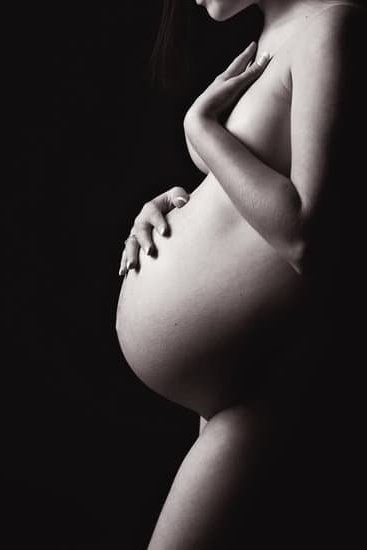Are you wondering, “Is frequent urination a sign of pregnancy?” Many women may not realize that this common symptom can actually be an early indicator of pregnancy. Understanding the early signs and changes that occur in the body during pregnancy is crucial for recognizing these subtle cues.
During pregnancy, the bladder and urinary system undergo significant changes due to hormonal shifts and physical changes in the body. These changes can lead to increased frequency of urination as the growing uterus puts pressure on the bladder, causing it to empty more frequently. This is why frequent urination is often experienced by pregnant women, especially in the first trimester.
The link between frequent urination and pregnancy is well-established, but it’s essential to consider other possible causes as well. Conditions like urinary tract infections, diabetes, or an overactive bladder can also lead to increased urination. However, if accompanied by other typical pregnancy symptoms like nausea, fatigue, or breast tenderness, frequent urination could very well be a sign of pregnancy. Understanding the timing and onset of this symptom can help in distinguishing its cause.
How Does Pregnancy Affect the Bladder and Urinary System?
During pregnancy, the body undergoes various changes to accommodate the growing fetus, and this includes alterations to the bladder and urinary system. These changes can lead to symptoms like frequent urination, often one of the early signs of pregnancy. Here are some ways in which pregnancy affects the bladder and urinary system:
- The uterus expanding: As the uterus grows to accommodate the developing baby, it puts pressure on the bladder. This pressure can result in a frequent urge to urinate as the bladder is compressed, even when it contains only a small amount of urine.
- Hormonal changes: Pregnancy hormones like human chorionic gonadotropin (hCG) and progesterone play a role in relaxing muscles and tissues in the body, including those in the urinary tract. This relaxation can decrease bladder capacity and cause more frequent trips to the bathroom.
- Increased blood flow: During pregnancy, there is an increase in blood volume circulating through the body. This increased blood flow filters through the kidneys more efficiently, leading to an increased urine output that contributes to frequent urination.
Understanding how pregnancy impacts the bladder and urinary system can help expectant mothers better manage symptoms like frequent urination. While this symptom is common during pregnancy, it is essential to distinguish between normal changes due to pregnancy and other potential underlying causes of frequent urination. If you suspect that you may be pregnant or are experiencing symptoms such as increased frequency of urination along with other signs of pregnancy.keywords: is frequent urination a sign of pregnancy.
The Link Between Frequent Urination and Pregnancy
Understanding the Increased Frequency
During pregnancy, the body undergoes various hormonal and physical changes that can impact the bladder and urinary system. One of the most common symptoms experienced by pregnant individuals is frequent urination.
This occurs due to several factors, including the increased production of blood by the body, which leads to more fluid being processed by the kidneys and ultimately excreted through urine. Additionally, as the uterus expands to accommodate the growing fetus, it puts pressure on the bladder, causing a need to empty it more frequently.
Why Does Frequent Urination Happen?
The hormone human chorionic gonadotropin (hCG), which is produced during pregnancy, can also contribute to frequent urination. This hormone not only helps in maintaining pregnancy but also stimulates blood flow to pelvic area and kidneys resulting in increased urine production. As a result, pregnant individuals may find themselves making more trips to the bathroom throughout the day and night.
Distinguishing Between Pregnancy Related Frequent Urination and Other Causes
It is essential for pregnant individuals experiencing frequent urination to differentiate whether it is indeed a sign of pregnancy or if there may be another underlying cause. While frequent urination is frequent urination a sign of pregnancy, it can also be caused by conditions such as urinary tract infections or diabetes.
If accompanied by other symptoms like pain or burning sensation during urination, cloudy urine, or fever, it is important to consult a healthcare provider for proper evaluation and treatment.
Other Possible Causes of Frequent Urination Besides Pregnancy
Frequent urination is a common symptom experienced by many individuals, and while it can be a sign of pregnancy, there are also other possible causes to consider. It is essential to understand that frequent urination may not always indicate pregnancy, as various factors can contribute to this symptom. Here are some other possible causes of frequent urination besides pregnancy:
- Urinary Tract Infection (UTI): UTIs can lead to increased frequency and urgency in urination. It is essential to watch out for other symptoms such as burning sensation during urination or cloudy urine.
- Diabetes: Both type 1 and type 2 diabetes can result in frequent urination due to the body’s inability to properly regulate blood sugar levels.
- Overactive Bladder: This condition can cause sudden urges to urinate and may also be accompanied by incontinence.
While these are just a few examples of potential causes of frequent urination, it is crucial to consult with a healthcare provider for an accurate diagnosis if you are experiencing this symptom. By identifying the underlying cause, appropriate treatment can be recommended to address the issue effectively.
When Does Frequent Urination Typically Start in Pregnancy?
During pregnancy, many women experience a range of symptoms that can indicate the early stages of growing a baby. One such symptom that is frequently reported is frequent urination. This can be attributed to the physiological changes that occur in the body during pregnancy, specifically how it affects the bladder and urinary system.
Physiological Changes in Pregnancy
As pregnancy progresses, the uterus expands as the baby grows, putting pressure on the bladder. This pressure can lead to increased urgency and frequency of urination. Additionally, hormonal changes in pregnancy, such as an increase in progesterone levels, can also play a role in triggering more frequent trips to the bathroom.
Typical Onset of Frequent Urination
For many pregnant individuals, frequent urination typically begins in the first trimester, around 6-8 weeks into their pregnancy. However, some women may experience this symptom earlier or later in their pregnancies. The intensity and frequency of frequent urination can vary from person to person.
As mentioned earlier, is frequent urination a sign of pregnancy? Yes, it is one of the common signs experienced by many expectant mothers due to these physiological changes. It is essential for pregnant individuals to understand when they might expect this symptom to start and how they can manage it throughout their pregnancy journey.
Tips for Managing Frequent Urination During Pregnancy
During pregnancy, many women experience an increase in the frequency of urination, which can be attributed to hormonal changes and the physical pressure on the bladder as the baby grows. This phenomenon is common and is often one of the early signs that a woman may be pregnant. So, is frequent urination a sign of pregnancy? Yes, it definitely can be one of the indicators.
One tip for managing frequent urination during pregnancy is to practice pelvic floor exercises, also known as Kegels. Strengthening these muscles can help support your bladder and improve bladder control. It’s important to do these exercises correctly, so consider consulting with a healthcare provider or a physical therapist who specializes in women’s health to ensure you are performing them effectively.
Another helpful tip is to watch your fluid intake. While staying hydrated is crucial during pregnancy, try to limit your consumption of fluids in the evenings to reduce nighttime trips to the bathroom. Also, avoid caffeinated beverages and drinks with artificial sweeteners, as they can irritate the bladder and worsen urinary frequency. Finding a balance between hydration and minimizing excessive fluid intake can help alleviate some of the challenges posed by frequent urination in pregnancy.
| Tip for Managing Frequent Urination | Key Information |
|---|---|
| Pelvic Floor Exercises (Kegels) | Consult with a healthcare provider or physical therapist for guidance |
| Fluid Intake Management | Balance hydration needs while minimizing excessive fluid intake |
Lastly, consider emptying your bladder completely each time you use the restroom to avoid incomplete voiding and prevent potential urinary tract infections. When sleeping at night, try lying on your side rather than on your back to reduce pressure on your bladder.
These small adjustments in lifestyle habits can make a significant difference in managing frequent urination throughout pregnancy. Remember that every woman’s experience with frequent urination during this period may vary, so it’s essential to find what works best for you through trial and error or by seeking professional guidance when needed.
When to Consult a Healthcare Provider About Frequent Urination During Pregnancy
When discussing the signs and symptoms of pregnancy, one common question that often arises is, “Is frequent urination a sign of pregnancy?” The answer to this question is yes, frequent urination can indeed be a sign of pregnancy. This symptom is often attributed to the hormonal changes and increased blood flow that occur during pregnancy, leading to the bladder filling up more quickly than usual.
During pregnancy, the uterus expands as the baby grows, putting pressure on the bladder. This pressure can cause a pregnant woman to feel the need to urinate more frequently. Additionally, hormonal changes during pregnancy can lead to an increase in urine production by the kidneys. As a result, many women experience frequent urination as one of the early signs of pregnancy.
It is essential for pregnant women experiencing frequent urination to consult their healthcare provider if they have concerns or if the symptom becomes severe or is accompanied by other troubling signs. In some cases, frequent urination may be indicative of a urinary tract infection (UTI) or other medical conditions that require treatment. Your healthcare provider can provide guidance on managing this symptom and ensure that any underlying issues are addressed promptly.
| Key Points | Relevance |
|---|---|
| Increased urine production due to hormonal changes | Explains physiological reason for frequent urination in pregnancy |
| Pressure on bladder from growing uterus | Describes how physical changes contribute to symptom |
| Potential urinary tract infection (UTI) concerns | Highlights importance of consulting healthcare provider for proper diagnosis and treatment |
Conclusion
In conclusion, understanding the early signs of pregnancy is essential for women who are trying to conceive or suspect they may be pregnant. One common question that arises is whether frequent urination is a sign of pregnancy. The answer is yes, frequent urination can indeed be a tell-tale sign of pregnancy due to hormonal changes and the increased pressure on the bladder as the uterus expands.
Pregnancy can significantly affect the bladder and urinary system, leading to symptoms like an increased need to urinate frequently. While this symptom may be bothersome for some women, it is a normal part of the pregnancy process. It’s worth noting that other possible causes of frequent urination besides pregnancy include urinary tract infections, diabetes, certain medications, or excessive intake of fluids.
For many women, frequent urination typically starts in early pregnancy and continues throughout the first trimester. However, every woman’s experience may vary, so it’s essential to pay attention to your body and consult with your healthcare provider if you have concerns. In managing frequent urination during pregnancy, staying hydrated but avoiding excessive fluids before bedtime, practicing pelvic floor exercises, and wearing loose clothing can help alleviate discomfort.
Overall, understanding the link between frequent urination and pregnancy can provide valuable insights for women on their journey to motherhood. Remember that every individual may experience pregnancy differently, so it’s important to seek guidance from healthcare professionals if you have any questions or concerns about frequent urination or any other symptoms during this special time in your life.
Frequently Asked Questions
How Early in Pregnancy Does Frequent Urination Start?
Frequent urination can start early in pregnancy, typically as early as the first trimester. This is due to hormonal changes causing increased blood flow to the kidneys which results in more urine production.
What Are the 1 Week Symptoms of Pregnancy?
Symptoms of pregnancy at 1 week may include fatigue, breast tenderness, and nausea. However, it’s important to note that many women may not experience noticeable symptoms this early in pregnancy.
Is Frequent Urination a Sign of Implantation?
Frequent urination can be a sign of implantation, but it is more commonly experienced once a pregnancy is confirmed and hormones continue to increase. It is usually associated with other indicators like missed periods and positive pregnancy tests.

Welcome to my fertility blog. This is a space where I will be sharing my experiences as I navigate through the world of fertility treatments, as well as provide information and resources about fertility and pregnancy.





